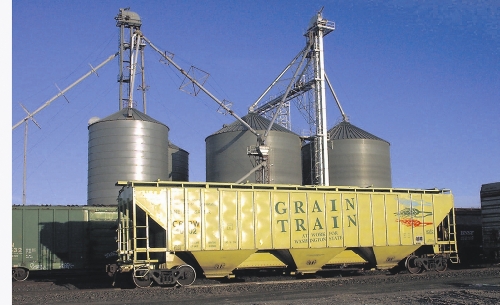forum
library
tutorial
contact

Anti-dam Activists Flood Listening Session
on Lower Snake River Dams
by Matthew Weaver
Capital Press, March 31, 2023
|
the film forum library tutorial contact |

|
Anti-dam Activists Flood Listening Session
by Matthew Weaver
|
"Today's participants were hand-picked activists, while the voices
representing millions of ratepayers were boxed out."
-- Kurt Miller, Northwest RiverPartners
 Of about 50 people who spoke during a March 31 online public listening session on the lower Snake River dams, only three opponents of breaching the dams were allowed to speak.
Of about 50 people who spoke during a March 31 online public listening session on the lower Snake River dams, only three opponents of breaching the dams were allowed to speak.
The lopsided distribution of speakers sparked criticism from dam supporters who believe opponents of the dams had stacked the deck.
"We have engaged in this process with the (Council on Environmental Quality) in good faith. It is unfortunate that this approach is not shared by everyone," Kurt Miller, CEO of Northwest RiverPartners, said in a statement. "Instead of a well-rounded discussion of critical issues like rate increases, grid reliability and the lower Snake River dams' critical role in meeting Oregon and Washington emissions laws, today's participants were hand-picked activists, while the voices representing millions of ratepayers were boxed out."
Northwest RiverPartners represents not-for-profit community-owned electric utilities in the region.
Each speaker had three minutes to speak.
The Federal Mediation and Conciliation Service holds the sessions to hear from other voices beyond those stakeholders involved in the mediation, said Greg Raelson, director of congressional and public affairs for the federal agency.
As part of the listening process, mediators have to be completely neutral and impartial and treat every viewpoint as important, Raelson said.
Speaking slots were assigned on a first-come, first-served basis.
What's to stop an organization from recruiting all its members to fill all of the speaking slots? Very little, Raelson said.
If a negotiator's organization were to send its entire membership a link to sign up to speak, it would "fit the bill" of broad distribution to the public, he said.
"I think that's a creative design challenge for the future; the technology makes it hard to limit that," Raelson said. "It's a good question."
A lawsuit filed by the National Wildlife Federation and a coalition of environmental groups and tribes has been stayed through Aug. 31 while the mediation takes place.
A second, "spillover" public listening session is scheduled for 10 a.m-1 p.m. Pacific time April 3.
All speaking slots for that session are already filled, according to the mediation service. Registration to attend and listen to the session is still open.
Miller, of Northwest RiverPartners, said the organization is "quickly losing faith" in the CEQ-led process.
Those who argued in favor of breaching the dams said that they were advocating on behalf of salmon, tribes and recreationists. They cited "overwhelming science" and "experts" who say salmon recovery is dependent upon breaching.
Dam breaching must be authorized by Congress. The cost of breaching the dams and building new generators to replace the 1 gigawatt of electricity the dams produce has been estimated in the tens of billions of dollars.
Several speakers claimed that rail is a suitable and available alternative to barge traffic in the river. That stretch of the Snake River is impassable without the dams and their locks.
Agricultural advocates disagree, citing safety, logistical and environmental concerns.
Chris Peha, general manager of the Northwest Grain Growers cooperative in Walla Walla, Wash., was one of the three speakers to oppose breaching.
"Contrary to what you've heard today, there is no conclusive scientific proof (breaching) will actually help salmon recovery," Peha told mediators.
If the dams are removed, increasing transportation capacity to replace barging is "virtually impossible," Peha said.
He cited geological obstacles, safety concerns, permitting required to expand highways and railroads through cultural heritage sites and sensitive habitats of other endangered species and "tens, if not hundreds" of other stakeholder issues.
A third public listening session is scheduled for 10 a.m. Pacific time May 25.
learn more on topics covered in the film
see the video
read the script
learn the songs
discussion forum
